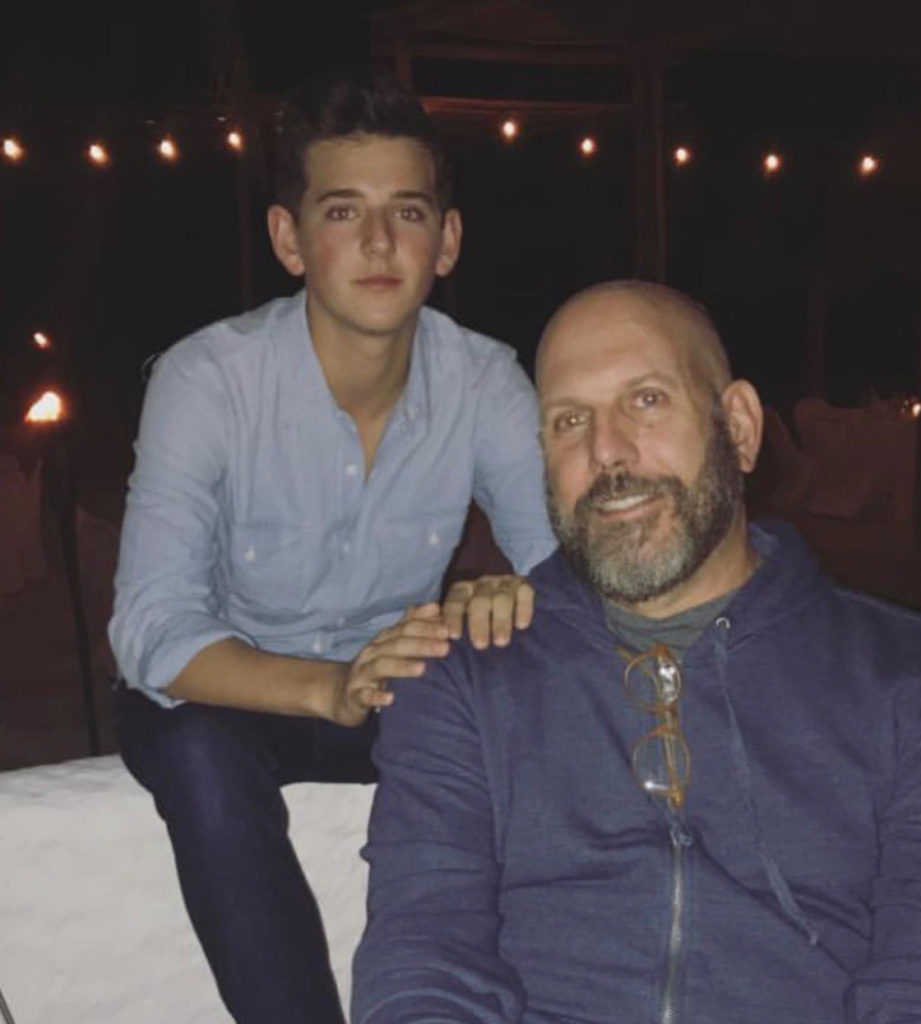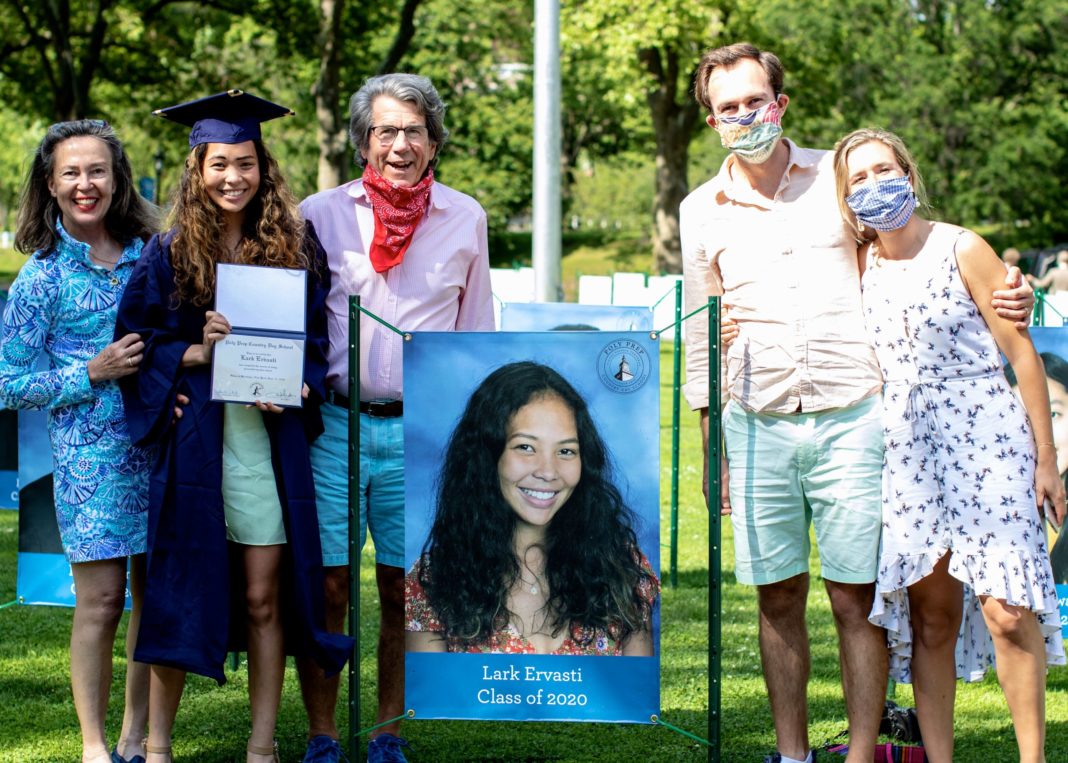The below reflections were submitted by parents of junior squash players from the high school Class of 2020. US Squash is celebrating the Class of 2020 as these exceptional student-athletes conclude their time in junior squash and move to the next stage in their lifelong engagement in the sport.
From Jean Ervasti, parent of Lark Ervasti (Class of 2020) and Jack Ervasti (Class of 2009)
I cannot overstate what an important role squash has played in Jack’s and Lark’s development as people and as athletes. During their junior squash years, outside of school, it is where they spent the most time.
My best memories are of road trips with Jack and Lark to pleasant cities and beautiful college campuses. I have often referred to tournaments as “our family’s wacky idea of a good time.” The tournaments were a wonderful way to spend a family weekend — staying in a hotel, having dinner together — with no other distractions or obligations other than to have our player well-rested, well-fed, and at the court on time wearing a cute outfit.
Junior Squash has given all four of us the opportunity to make wonderful friends and friendly acquaintances. At any squash gathering or event, we can enjoy the camaraderie in our personal small world of squash: junior players, their parents, urban squash team members and staff, touring pros, club coaches, college coaches, referees, and of course, the US Squash staff who make it all possible.
In addition to a love of the game itself, the social aspect of the sport has been a highlight for both. Junior squash provided Jack and Lark a way to have some “good clean fun” with their friends after school and on weekends during high school. They played on their high school teams, which was a valuable way of getting team experience in an individual sport.
I appreciate getting the chance to share some advice on what we’ve learned as a family over our time as part of the junior squash community. First and foremost – make it fun, whatever that means for your family! It can be very special time together.
When people asked me how I could be so calm while watching my children play, I told them that it helps to view each match as a tiny dot on a long timeline of squash that they will play throughout their lives. For example, both Jack and Lark started playing squash when they were five years old, and my husband John still plays a lot of squash at age 65. That’s a long timeline! But even on the shorter timeline of playing junior and college squash, it is still 14 years of squash from U11 through college.
If your child wants to play college squash, he or she can and will. I have never known a junior who wanted to play in college that did not have an opportunity to do so. There are many college teams, and more have been added recently. Most colleges that have squash teams are good schools where your child can experience a successful triangle of academics, social life, and sport.
Playing squash is not about “getting in” to college — it’s about what you do with your time and energy when you are there. Yes, junior squash will help you be noticed and chosen by coaches and colleges. But that’s just the beginning — playing college squash provides you with an instant group of friends, team camaraderie, and a way to organize your life on campus.
I will also include a piece of advice John which I think is important: “If I had one request for my fellow squash parents, root for your child’s opponent as hard as you root for your child. We are trying to teach sportsmanship to our children and true sportsmanship starts at home. Let’s not worry about wins and loses but focus on enjoying the game.”
To close, I want to thank the other junior squash families with whom we’ve had the chance to spend so much time. The vast majority of junior squash families and coaches are really nice. I absolutely loved my nearly 20 years as a Junior Squash parent, and I will miss it.

From Bruce Huberman, father of Morgan Huberman (Class of 2020):
The 2019-2020 season was Morgan’s final year of junior squash. It seems like yesterday when Morgan was invited to the New York Sports Club on 86th Street in 2007. Morgan was 6 ½ years old at the time and had been playing a lot of tennis, but after running around a squash court, he was hooked and decided to focus on squash. One year later, Morgan participated in his first Nationals – the Bronze Nationals – at Berwyn in Pennsylvania. The tournament was incredibly exciting but was also a humbling experience. Morgan had a tough time winning any matches, let alone many games, but he came away from that event driven to work hard to improve as a player.
Luckily, Morgan quickly made a home for himself at the NYSC and Pyramid Squash where he quickly made several friends, among whom were Mason Ripka and Jordan Brail. Both were top players in the country and had a huge influence on Morgan’s squash through their camaraderie and constant advice. Morgan also had the opportunity to work with a number of great coaches. The relationships made and instruction received had a tremendous impact on him as a player and helped shape the person he is today. It was this environment that set the stage and allowed Morgan to push himself to improve.
Morgan ended his time in the U11’s being ranked No. 1 – an accomplishment that allowed him to join the contingent of U.S. players at the British Junior Open. As an 11-year old, this provided him the tremendous experience of spending the week in England with Sabrina Sobhy, Mason Ripka, Jordan Brail, and Derick Hsu.
Morgan found success in the major tournaments through the U13’s, but as he progressed into the U15’s and U17’s, the competition got significantly harder. His peers were all getting stronger and pushing him competitively. He learned that more focus was needed on strength and conditioning to keep pace, and he was fortunate enough to spend a few summers in Egypt alongside the world’s best players. Through commitment and hard work, he was able to position himself in the top five in the U17’s. Unfortunately, due to the coronavirus, Morgan’s final season in junior squash was cut short and Morgan was not able to compete in his last U19 Nationals. While devastating in the short term, as it was for all the players, this does not take away from the exceptional journey he has taken over the past decade in the sport.
Reflecting as a parent on the last twelve years of our involvement with squash, I have grown a lot as a person, as a dad, and as a pseudo squash coach – there’s a big learning curve as a parent of a junior squash player. I hope some of the insights I’ve gained can be helpful to the many families who have more years of junior squash ahead of them.
First and foremost, the impetus and drive to play and compete must come from the player, not the parent. The parent should only be the conduit and support staff for the player. It is such a long road and there were times that Morgan had entertained leaving the sport. In these moments, I had to take a big step back in order for Morgan to take the next steps forward.
The pressure with school and the college process as our children get into the older divisions can become very difficult, frustrating, and exhausting. As parents, we must try to keep the atmosphere light and positive and neither focus on the hard losses nor dwell on the successes. Early success does not guarantee where your child will end up in the older divisions. It’s such a long road and so many variables come into play. As long as the player stays healthy and is willing to do the training that is necessary to compete at the highest level the successes will come. Talent is only one part of the puzzle and most of the time the player who works and trains the hardest will succeed the most.
I’m so grateful to the class that Morgan grew up with. A great group of young men and women, not to mention exceptional squash players. It was so nice to travel through this journey with them.
The best part of the experience aside from the matches, which make up a very small percentage of the overall experience, was the years of traveling with Morgan and meeting such wonderful parents and coaches and experiencing great cities along the way. I would be remiss if I didn’t mention the team at US Squash. Without their vision, and the hard work of their entire staff, this experience would never have had come to fruition.
Morgan has gleaned many of life’s lessons through squash which should translate well throughout his life. Sportsmanship and dealing with adversity on the court are tools which will be necessary as he steps into the world after high school.
Our experience with junior squash is one which Morgan and I will have forever, and we could not be more excited for Morgan’s college squash experience.
Till the next nick!
US Squash encourages families to send their own thoughts, advice and experiences to office@ussquash.com.













